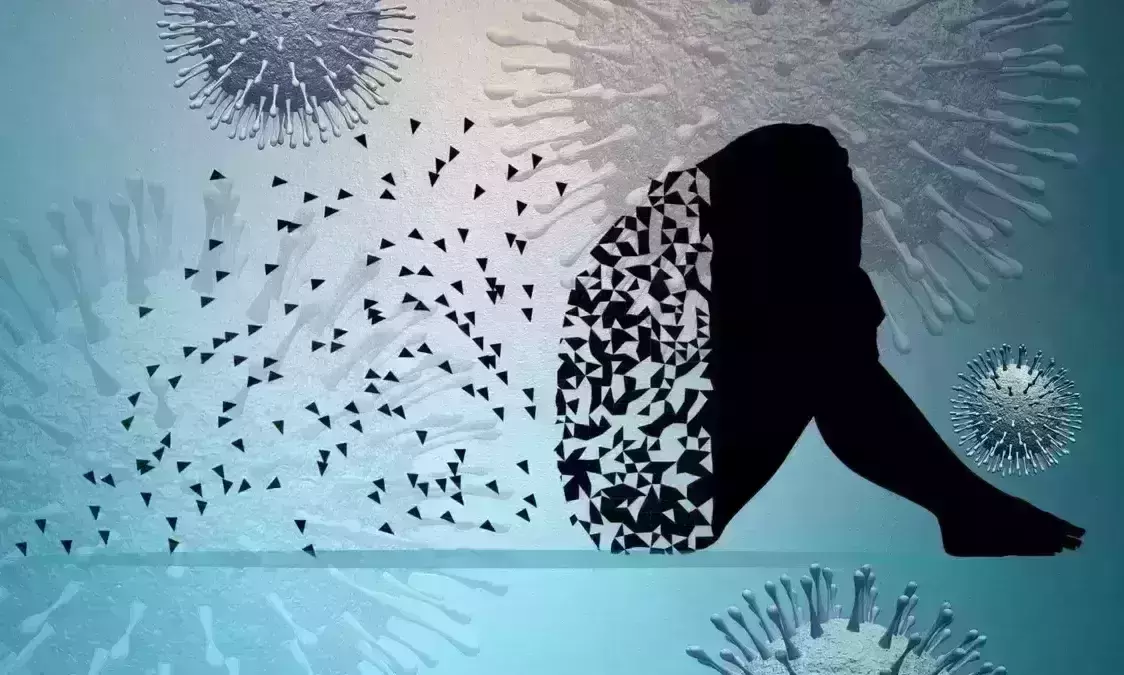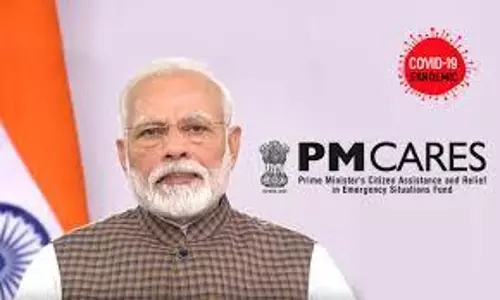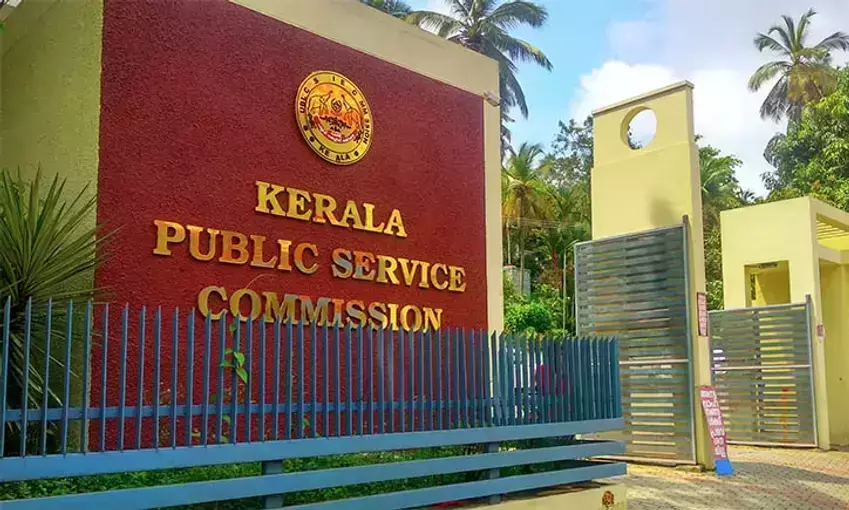

Image Courtesy: (Pixabay, Canva)
The psychological pandemic
text_fields"There is but one severe philosophical problem, and that is suicide. Judging whether life is or is not worth living amounts to answering the fundamental question of philosophy. All the rest … comes afterwards."
Albert Camus, The Myth of Sisyphus.
Kerala, like the rest of India, has been badly stuck in a steep economic downturn due to continuous Covid lockdowns. The post-Onam Covid Test Positivity surge has prompted the Kerala State Disaster Management Authority (KSDMA) to declare another phase of lockdown in 4,155 wards in 296 local bodies, exceeding seven per cent weekly infection population rate (WIPR). Between Covid management, continuing lockdowns, and the ongoing economic distress lies the vast no man's land of almost daily suicides reported from different parts of the state.
Since the last three decades, Kerala's socio-economically 'developed' state has had to deal with one paradox – that it aced in suicide rates compared to the other states of India. This is largely attributed to the state's fetishization of educational and material 'success' among all sections of its population. But with Covid, all forward growth has been summarily put on hold, and lockdowns have become the order of the day.
Affected categories of people:
Each time a lockdown is imposed, the primary affected are the businessmen. The first noted suicide at the beginning of the Covid season was by UAE-based Keralite businessman Joy Arakkal. Now, as Kerala is getting deeper into the second wave with a full-blown Delta variant, the effects of Covid-induced Post Traumatic Stress Disorder (PTSD) suffered from last year is manifesting among the lower-income groups. Small vendors, small farmers, tour operators, drivers, grocery shop owners, bus-fleet owners, people in the entertainment business etc., have sought closure to their continuing misery by suicide.
A significant section, who have called it quits in Kerala, are young brides. They have had to undergo lifestyle/behavioural adjustments in the unfamiliar homes of their husbands, where many faced dowry harassment. Due to Covid lockdown, they were stuck in isolated distress without the succour of genuine friends or relatives. Continued TV debates on 24year-oldVismaya Nair's suicide triggered further 'copycat' suicides among other young brides around the same time.
Some other categories of Kerala's population who suffered deep mental distress during the lockdown were:
♦ those who could not repay bank loans and personal debts; did not find the money needed for auspicious occasions like children's weddings; many who could not retrieve the family gold pledged to non-banking finance corporations.
♦ the 'vulnerable' aged population, who had to stay strictly indoors and were deprived of their routine visits to relatives, friends, local groceries and places of worship.
♦ students, as parental expectations of exam success, remained high despite the shift to online classes and the changed circumstances. They missed playing and interacting with their peers.
♦ students from tribal and poor backgrounds who were excluded from online classes.
♦ young adults with failed love affairs.
Lockdown homes: A cauldron of issues
The continuous lockdowns affected all the above categories, which kept them inside their respective homes as never before. Every family member had earlier negotiated their routines and emotions more outside homes than inside. But with Covid's new WFH and online education schedules and responsibility sharing by all members in housework, homes took on the air of full-attendance office spaces where nobody could relax even for a moment.
When living in the full glare of each other, issues of differing preferences, habits, social media obsessions, mood disorders, waking, sleeping and eating timings of different age groups collided, even when each family member simultaneously tried to process and deal with issues of diminished earnings and future challenges. News of the death of close people hung heavily in the air all the time. The 24x7 news feeds on Twitter, and the intense TV debates made each one anxious about the changes happening all around, on which they had little control. People also constantly worried about how much the world would change by the time they would emerge out of the Covid situation.
Alcoholism and other addictions, domestic violence and child sexual abuse turned some homes into virtual hells, causing severe trauma in victims and even their suicides.
Mental illnesses were tragically sidelined during Covid lockdown. These, when not controlled by periodic hospital visits for medicine and treatment adjustments, lead to harmful situations for both the individuals and their caregivers within the four walls of a home.
The daily insane repetitions of hopeless family rituals shappening within lockdown homes would lead many to question whether such a life was worth living for. However, as things stand now, we have to somehow tide over this psychologically trying period as the Coronavirus mutants are predicted to remain in pockets around the globe for quite some more time.
The first requisite in this long haul is to cultivate a help-seeking mentality in the population to encourage people to reach out to the various telephone helpline numbers and talk about their issues. Apart from seeking psycho-social interventions provided by the government and other agencies, lockdown homes can be vastly improved if family members across age groups can mindfully channelize their minds to undertake creative pursuits.
They can use the time to discover hidden talents, setting them on an altogether different journey of self-realisation in such gloomy times. Potential suicides that happen on minor triggers can thus be perpetually postponed if the mind finds a convincing purpose to focus on.
Ever since the first Covid cases started trickling down to the state from PRC in early 2020, the state government has been at the forefront of making emergency socio-psychological interventions among the Covid-affected population. The Kerala government runs Mental Health Programs in all districts of Kerala as part of the State Mental Health Program. It has so far made around 1.17 crore calls to people around the state. The state government's Jeevan Raksha suicide prevention program gives specialized training to community gatekeepers such as police, doctors, teachers, religious heads, etc. The message of hope and mindful activity reach the largest number of people. There are also multi-layered intervention programs aimed at students and children. The state also runs community de-addiction programs.
The Coronavirus may hopefully vanish sooner or later, but we are undoubtedly on the verge of a psychological pandemic. The psychological stress from the present times will manifest as PTSD among the population for a long time yet. Unless we gear up for that terrible eventuality, we will find ourselves in an unprecedented and intractable mess.
(Leena Mariam Koshy is an independent writer based in Kozhikode, Kerala.)
















